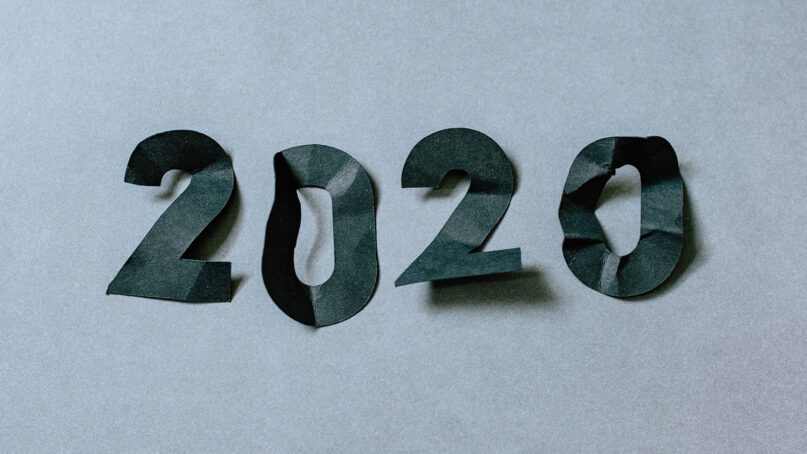(RNS) — We can all agree 2020 was a bad year. But not for everybody or every pursuit: For some — the kinds of religious actors and forces that received outsized attention, support and access to power were, frankly, up to no good — it wasn’t bad at all.
These groups include those evangelicals who worshipfully followed Trumpism to its ugly end, religious communities that insisted on ignoring a global pandemic to the detriment of public health and their own congregants’ safety, and Catholics who used to challenge dominant cultural or political trends but who have become unconditional disciples of parties and ideologies.
My conception of bad religion owes something to New York Times columnist Ross Douthat’s 2012 book of that name, subtitled “How We Became a Nation of Heretics.” Douthat argued that American Christianity, on balance a force for good in the postwar era, had devolved into a spiritualized accommodation to feel-good consumerism, bereft of doctrine and characterized by obsession with wealth and political power on the right and self-elevating, self-righteous Oprah-Christian syncretism on the left.
The decade since Douthat started writing about bad religion has produced caricatures he could scarcely have imagined then, with too many religious leaders gleefully serving as chaplains for bizarre and profoundly un-Christian political and cultural forces. The broad middle of American religious culture that once could reliably protect and critique American society continues to decline. The 2010s had already hollowed it out. 2020 decimated it.
While there were some heroic exceptions, white evangelicals turned their conditional embrace of America-first populism five years ago into blind cheerleading for President Donald Trump that survived his ever more contemptuous attacks on democracy, decency and basic truth. Trump’s evangelical disciples have given religious sanction to a new Lost Cause mythology, ensuring that evangelicalism will be haunted, divided and racialized for years to come.
The temptations of Trumpism took the form of a real-life morality play in Jerry Falwell’s long-coming public unraveling. Trump’s first big-name evangelical supporter apparently forsook Liberty University’s “champions for Christ” motto for power and fortune. Having failed his test in the desert, Falwell was ousted as the school’s president after revelations of ethical lapses and marital problems that included his complicity in his wife’s affair with a Miami Beach pool boy who became a Falwell business partner.
The real scandal is not what the pool boy did to Mrs. Falwell, however, but what Trump did to evangelicalism while men like Falwell watched. Trump was satisfied to see once well-regarded evangelical figures drag God’s name through the mud to get as much attention, power and money as they could, sometimes taking the bad-religion playbook to new heights of excess and obnoxiousness.
The pandemic, meanwhile, made supposed heroes of evangelicals who defied sensible precautions to slow the spread of a virus that has killed many thousands of Americans. Christian musician Sean Feucht, a failed 2020 California congressional candidate, made headlines for holding outdoor concerts in several cities that drew crowds of mostly unmasked worshippers. As California was overwhelmed by a second wave of COVID-19, Christian actor Kirk Cameron held a mass caroling event in a mall parking lot.
These acts of vainglory grabbed attention for bad religion while many responsible faith leaders quietly made difficult decisions to accommodate public health orders, temporarily suspending or drastically reducing in-person worship. Others struggled: Conservative Orthodox Jews, in particular, often failed to acclimate their worship practices to electronic devices and limits on room capacities.
In 2020, the U.S. Catholic bishops had to contend with bad religion all around them. The prospect of having one of their own in the White House forced them to address the fact almost no Catholic in public life believes everything his or her church teaches. The few who exist were ever more marginalized, maligned or ignored in the fever-pitch politics of 2020.
After a year that was a superspreader event for bad religion, it’s time for us to de-platform the clown-show faith that captured headlines and too many hearts. As the third decade of the third Christian millennium dawns, let’s do our best to focus attention on religious people who are doing the work, practicing humble piety and picking up the pieces from schisms and heresies.
American religion must become a public-spirited, prophetic force once again. Good religion is not a mystery, and the New Testament Epistle of James offers a timely reminder: “Religion that is pure and undefiled before God the Father is this: to visit orphans and widows in their affliction, and to keep oneself unstained from the world.”
May it be so in 2021, and forevermore.





